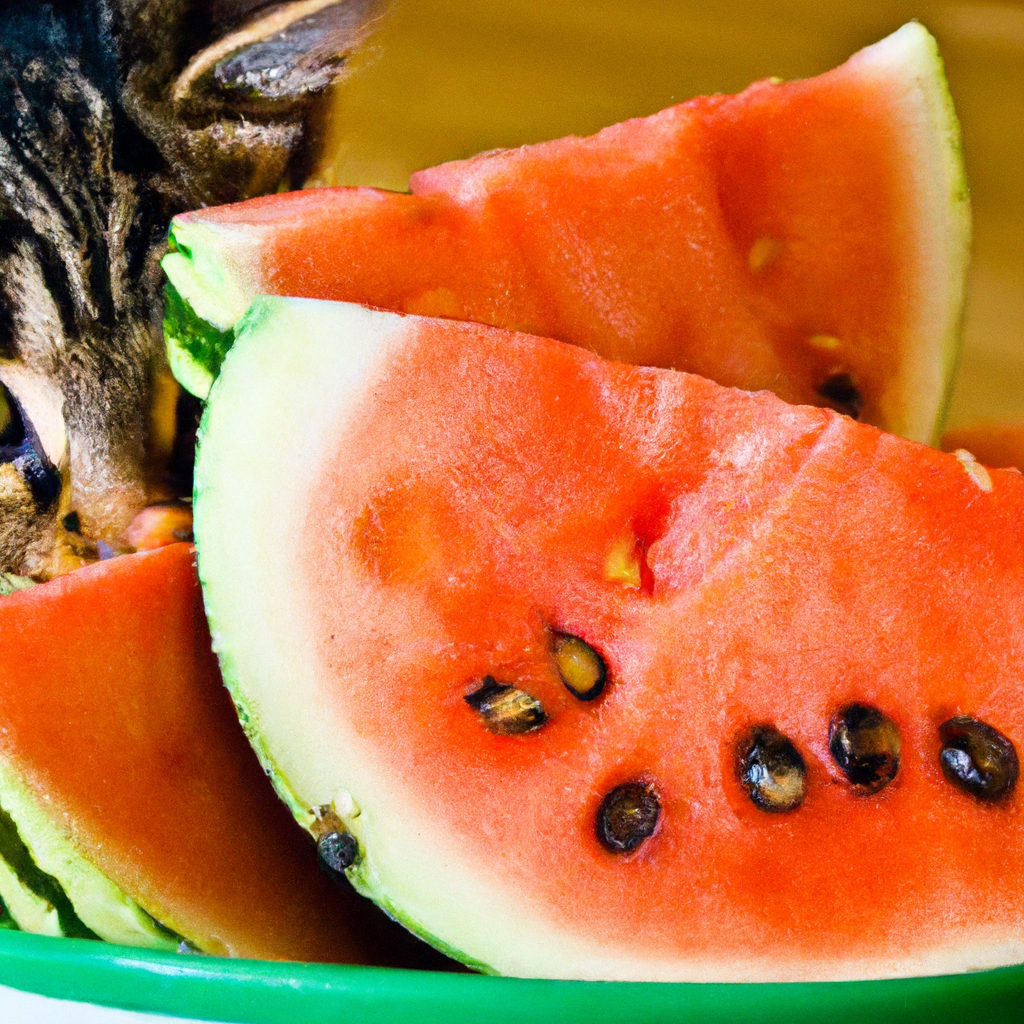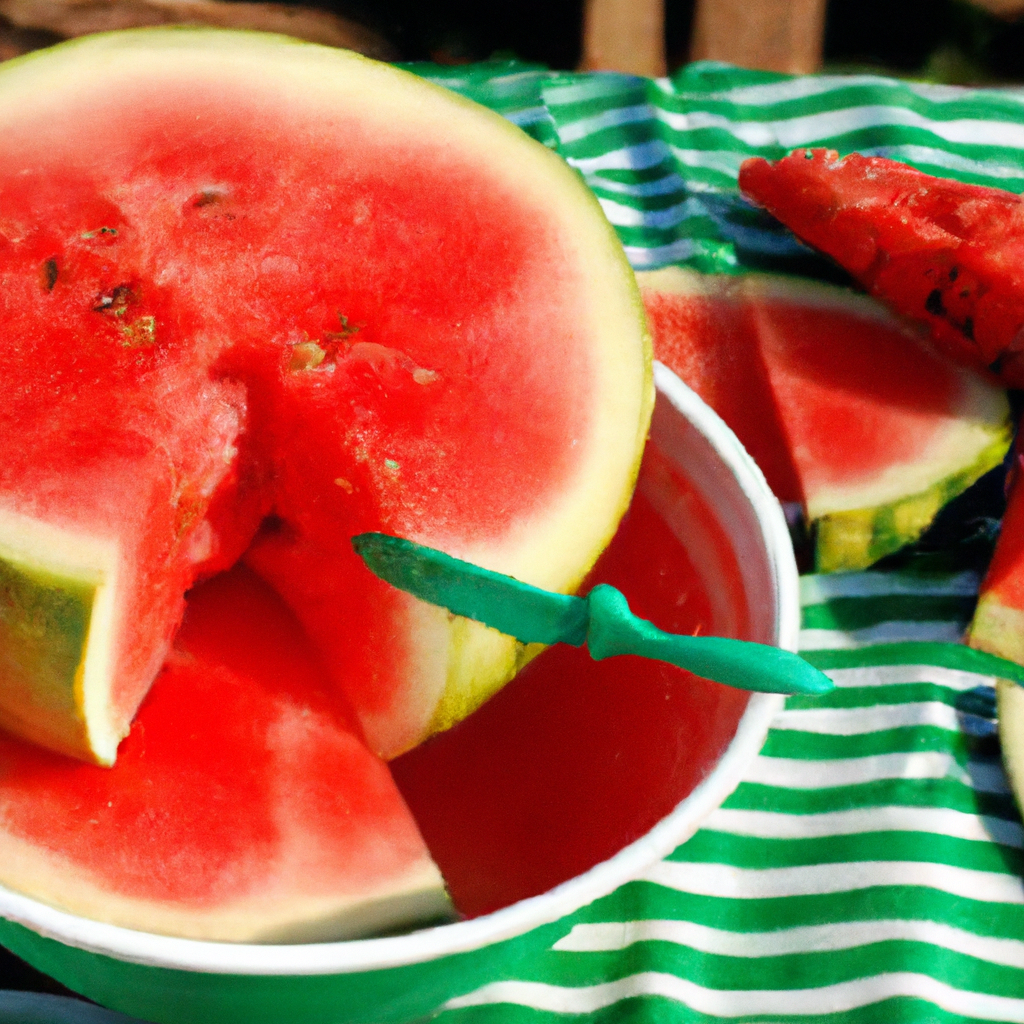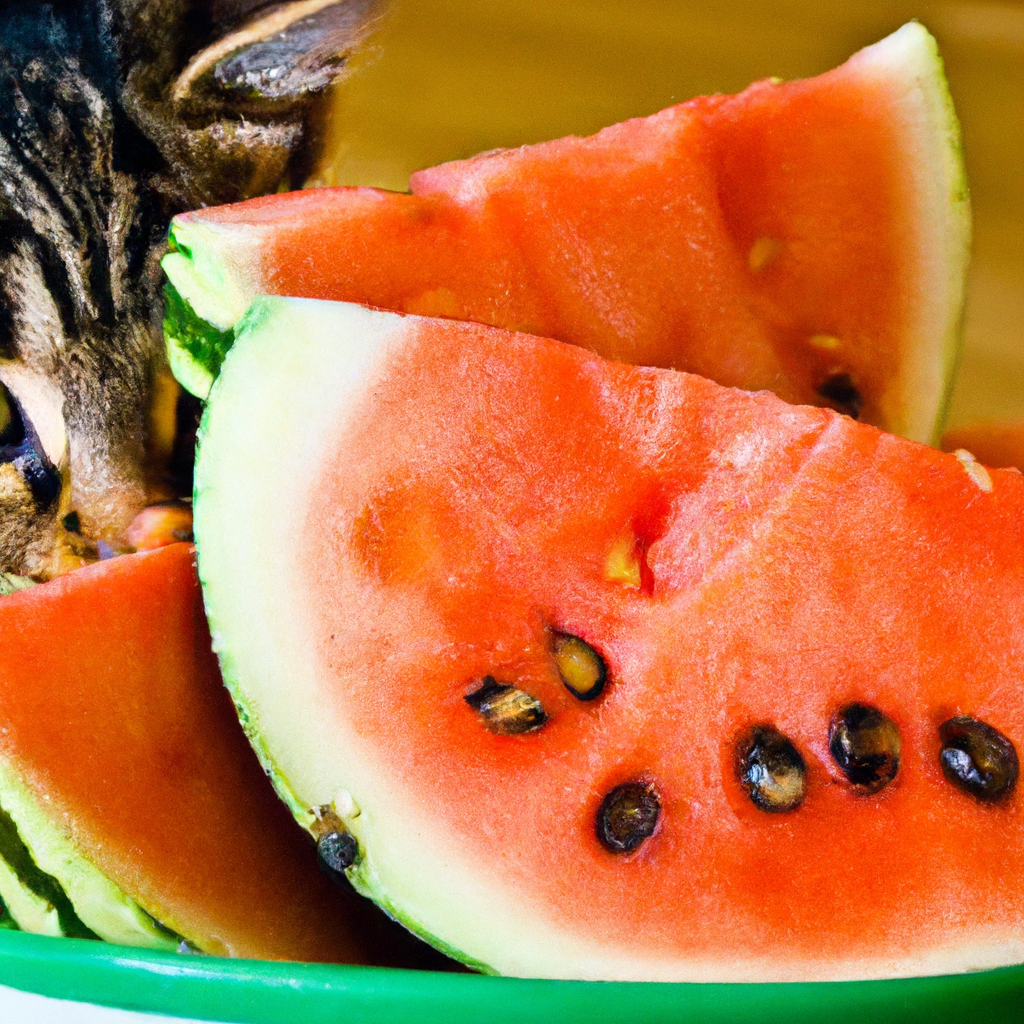Ever wondered whether your furry feline friend can enjoy a refreshing treat of watermelon? You may be surprised to know that some cats do have a fondness for this summertime fruit. While not all cats will find watermelon appealing, it can actually be a safe and healthy snack for them when consumed in moderation. So, if you’re curious about whether cats can eat watermelon, read on to find out more about what makes this delicious fruit a potential delight for your purring companion.
Can Cats Eat Watermelon
Watermelon is a popular summer fruit known for its refreshing and hydrating properties. As a cat owner, you may wonder if it is safe to share this delicious treat with your furry friend. In this article, we will explore the topic of cats eating watermelon, discussing the potential health benefits, precautions to take, and signs of allergic reactions.


Overview of Cats’ Diet
Before diving into the specific question of whether cats can eat watermelon, it is important to have a general understanding of their dietary needs. Cats are obligate carnivores, which means they require a diet primarily consisting of meat. This is because their bodies are designed to efficiently digest and utilize animal protein. Additionally, cats have a limited ability to break down certain plant-based nutrients.
To thrive, cats need a diet that is rich in high-quality protein from sources such as meat, poultry, and fish. Protein provides essential amino acids that are crucial for their growth, maintenance, and overall well-being. In addition to protein, cats also require adequate amounts of water, as they have a low thirst drive and can be prone to dehydration. They also need certain vitamins and minerals to support their bodily functions.
Is Watermelon Safe for Cats
Now, let’s address the main question: Can cats eat watermelon? The good news is that yes, watermelon is generally safe for cats to consume in moderation. However, there are a few factors to consider before adding watermelon to your cat’s diet.
Firstly, as watermelon is primarily composed of water, it can contribute to your cat’s hydration. This can be beneficial, especially during hot summer months when cats may need extra fluids. Watermelon also contains vitamins and minerals that can potentially offer some health benefits to your feline friend.
However, it is important to note that cats have a limited ability to digest and absorb nutrients from plant-based foods. Their digestive systems are specifically designed to process animal protein. While small amounts of watermelon are unlikely to cause any harm, it should not replace the main source of nutrition in your cat’s diet.
Nutritional Value of Watermelon
Watermelon has a high water content, which can help keep your cat hydrated. In addition to water, it also contains small amounts of essential vitamins and minerals that can contribute to your cat’s overall health. Some of the key nutritional components of watermelon include:
-
Vitamins: Watermelon contains vitamins A and C, which are important for maintaining a strong immune system and promoting healthy eyesight.
-
Minerals: This fruit provides minerals like potassium and magnesium, which are necessary for maintaining proper muscle function and supporting heart health.
-
Fiber: Watermelon also contains dietary fiber, which can aid in digestion and promote bowel regularity.
-
Sugar Content: Watermelon contains natural sugars, so it is important to keep portion sizes small to prevent an excessive intake of sugar.


Potential Health Benefits
While watermelon may not be a staple in a cat’s diet, it does offer some potential health benefits when fed in moderation. Here are a few of the benefits associated with consuming watermelon:
-
Hydration: Given its high water content, watermelon can help keep your cat hydrated, especially during warmer months or if your cat is not keen on drinking water.
-
Vitamin C Boost: The presence of vitamin C in watermelon can support your cat’s immune system, helping to keep them healthy and less prone to illness.
-
Anti-Inflammatory Properties: Watermelon contains compounds that have been associated with anti-inflammatory effects, which may be beneficial in supporting your cat’s overall wellbeing.
-
Eye Health: The presence of vitamin A in watermelon can contribute to good eye health in cats, helping to maintain proper vision.
-
Digestive Health: The fiber content in watermelon can aid in digestion and promote healthy bowel movements.
Introducing Watermelon to Your Cat’s Diet
If you decide to introduce watermelon to your cat’s diet, there are a few important considerations to keep in mind. It is always recommended to consult with your veterinarian before making any changes to your cat’s diet. They can provide advice tailored to your cat’s individual needs and health status.
Start by offering small amounts of watermelon as a treat. It is important to closely observe your cat for any negative reactions or digestive issues. Some cats may have sensitive stomachs and may experience diarrhea or upset stomach if they consume too much watermelon. If your cat tolerates watermelon well, you can gradually increase the portion size or incorporate it into their regular meals.
Precautions and Considerations
While watermelon can be incorporated into a cat’s diet in moderation, there are a few precautions and considerations to keep in mind:
-
Seed Removal: Watermelon seeds can pose a choking hazard or cause intestinal blockages. It is essential to remove all seeds before offering watermelon to your cat.
-
Avoiding Rind: The hard and tough rind of watermelon can be difficult for cats to chew and digest. It is best to remove the rind and offer only the flesh to your cat.
-
Limiting Portion Size: Cats have small stomachs and limited digestive capabilities, so it is important to offer watermelon in small portions. Aim for bite-sized pieces or thin slices.
-
Monitoring for Digestive Issues: Keep a close eye on your cat after they consume watermelon. Watch out for any signs of gastrointestinal upset, such as vomiting or diarrhea. If any issues arise, stop giving watermelon and consult with your veterinarian.
-
Monitoring for Weight Gain: Watermelon contains natural sugars and calories, so it’s important to monitor your cat’s weight and body condition. Excessive consumption of watermelon can contribute to weight gain and obesity.
Foods Cats Should Avoid
While watermelon is generally safe for cats when given in moderation, there are other fruits and foods that should be avoided. Some common fruits that can be toxic to cats include grapes, raisins, and citrus fruits. These fruits can potentially cause kidney damage or gastrointestinal upset in cats.
Additionally, certain foods that are safe for humans can be harmful to cats, such as onions, garlic, chocolate, caffeine, and alcohol. It is important to be aware of these harmful foods and ensure they are kept out of your cat’s reach.
Signs of Allergic Reactions
Just like humans, cats can develop allergic reactions to food. If your cat consumes watermelon and experiences any of the following symptoms, it could be a sign of an allergic reaction:
- Vomiting
- Diarrhea
- Excessive scratching or licking
- Swelling of the face, lips, or tongue
- Difficulty breathing
If you observe any of these symptoms, it is important to seek immediate veterinary attention. Allergic reactions can be serious and require prompt medical intervention.
What to Do If Your Cat Eats Watermelon
If your cat managed to sneak a bite of watermelon without your knowledge, there is usually no need to panic. As long as your cat consumed only a small amount, they are unlikely to experience any significant adverse effects. However, if your cat ingests a large quantity of watermelon, it may cause an upset stomach or diarrhea.
In such cases, it is best to monitor your cat closely and ensure they have access to clean water. If the symptoms persist or worsen, it is advisable to contact your veterinarian for further guidance.
Conclusion
In conclusion, cats can eat watermelon in moderation. While it is generally safe for them, it should not replace the main source of nutrition in their diet. Watermelon can offer some potential health benefits, such as hydration and the provision of essential vitamins and minerals. However, it is important to take precautions and consider your cat’s individual needs and digestive capabilities.
Always consult with your veterinarian before introducing watermelon or any other new food into your cat’s diet. Remember to remove seeds and rind, monitor for any negative reactions, and keep portion sizes small. By considering these factors and being mindful of your cat’s dietary requirements, you can safely share a refreshing treat like watermelon with your feline friend.

